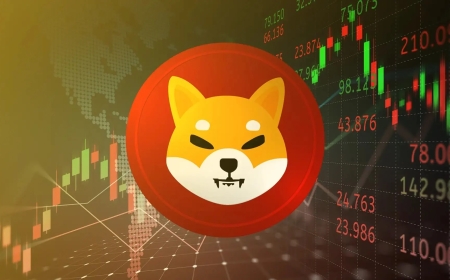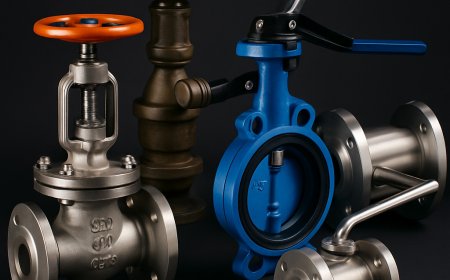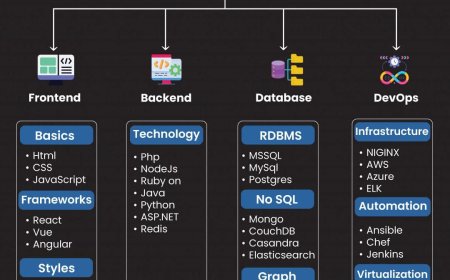How to plan a corporate event in Omaha
How to Plan a Corporate Event in Omaha Planning a corporate event in Omaha requires a blend of strategic foresight, local knowledge, and operational precision. As the largest city in Nebraska and a growing hub for business, logistics, and culture in the Midwest, Omaha offers a unique combination of affordability, accessibility, and professional infrastructure that makes it an ideal destination for
How to Plan a Corporate Event in Omaha
Planning a corporate event in Omaha requires a blend of strategic foresight, local knowledge, and operational precision. As the largest city in Nebraska and a growing hub for business, logistics, and culture in the Midwest, Omaha offers a unique combination of affordability, accessibility, and professional infrastructure that makes it an ideal destination for corporate gatherings. Whether you’re hosting a regional sales kickoff, a national client appreciation day, or an annual leadership retreat, the success of your event hinges on thoughtful planning that aligns with Omaha’s distinct advantages and challenges.
Corporate events serve more than just networking purposes—they reinforce brand identity, drive employee engagement, foster client loyalty, and communicate organizational values. In a city like Omaha, where community and authenticity are deeply valued, a well-executed event can leave a lasting impression that extends far beyond the event day. This guide provides a comprehensive, step-by-step roadmap to planning a corporate event in Omaha, from initial concept to post-event analysis, with actionable insights, best practices, recommended tools, real-world examples, and answers to frequently asked questions.
Step-by-Step Guide
Define Your Event Objectives and Audience
Before selecting a venue or sending out invitations, clearly articulate the purpose of your event. Are you aiming to celebrate milestones, launch a product, train staff, or strengthen client relationships? Each objective demands a different format, tone, and structure. For example, a training summit may require breakout rooms and audiovisual equipment, while a client appreciation gala might prioritize ambiance, catering, and entertainment.
Simultaneously, define your target audience. Are attendees primarily executives, frontline employees, external partners, or a mix? Understanding demographics—including job roles, geographic distribution, and preferences—helps tailor everything from venue selection to dietary accommodations. In Omaha, where many companies operate across manufacturing, finance, healthcare, and tech, tailoring your event to the industry norms of your attendees enhances relevance and engagement.
Set a Realistic Budget
Corporate event budgets in Omaha are generally more favorable than in coastal metropolises like Chicago or Denver. According to industry benchmarks, average corporate event costs in Omaha range from $75 to $150 per attendee, depending on scale and amenities. Allocate your budget across key categories:
- Venue rental (25–35%)
- Catering and beverages (20–30%)
- Audiovisual and technology (10–15%)
- Marketing and invitations (5–10%)
- Staffing and logistics (10–15%)
- Contingency fund (5–10%)
Omaha’s competitive vendor market allows for cost savings without sacrificing quality. For instance, venues like the Omaha Convention Center, The Creighton Club, or the Joslyn Art Museum offer flexible pricing and bundled services. Always request itemized quotes and negotiate package deals—many venues offer discounts for non-profits, repeat clients, or off-peak dates.
Choose the Right Date and Time
Timing is critical. Avoid scheduling your event during major holidays, university breaks (such as University of Nebraska–Lincoln’s spring break), or major local events like the Omaha Film Festival (April) or the College World Series (June). These periods strain hospitality resources and inflate prices.
Consider seasonal factors: Omaha experiences hot, humid summers and cold winters. Spring (April–May) and early fall (September–October) offer mild weather, ideal for outdoor receptions or walking tours. Winter events (November–February) require careful attention to heating, parking, and snow removal logistics. If your event includes out-of-town guests, choose dates that minimize travel conflicts—midweek (Tuesday–Thursday) typically yields higher attendance than weekends.
Select a Venue That Aligns with Your Brand and Goals
Omaha boasts a diverse portfolio of venues suited to corporate needs:
- Omaha Convention Center: Ideal for large-scale conferences with 1,000+ attendees. Offers 300,000 sq. ft. of flexible space, on-site catering, and direct access to downtown hotels.
- The Creighton Club: A sophisticated, historic venue within Creighton University’s campus. Perfect for intimate executive dinners or board meetings.
- Joslyn Art Museum: Offers a cultural backdrop with natural light and art installations—great for branding-focused events or client appreciation nights.
- CHI Health Center Omaha: Best for large conventions, trade shows, or hybrid events with high-tech AV needs.
- Old Market District: For experiential events, consider private warehouses or converted lofts in this historic neighborhood. Offers charm, walkability, and proximity to restaurants.
When evaluating venues, ask about:
- Capacity and layout flexibility
- On-site parking and public transit access
- AV equipment and technical support
- Catering options and dietary accommodations
- Accessibility compliance (ADA)
- Wi-Fi bandwidth and security
- Vendor restrictions (can you bring in outside caterers or decorators?)
Book early—popular venues in Omaha fill up 6–12 months in advance, especially for spring and fall.
Plan Logistics and Transportation
Omaha’s downtown is compact and walkable, but many attendees may come from out of town. Coordinate transportation options:
- Arrange shuttle services between major hotels (e.g., The Westin, The Omaha Marriott Downtown, The Embassy Suites) and the venue.
- Partner with local ride-share services for discounted group rates.
- Provide clear signage and maps for parking garages (e.g., 11th & Dodge Garage, 14th & Farnam Garage).
- If hosting a multi-day event, recommend hotel blocks with negotiated rates.
For international or out-of-state attendees, include airport information: Eppley Airfield (OMA) is a well-connected hub with direct flights from major cities. Include directions, estimated drive times, and local taxi/ride-share options in your event communications.
Design the Program and Agenda
A compelling agenda keeps attendees engaged and on schedule. Structure your event with a clear flow:
- Registration and welcome (30–60 minutes)
- Opening keynote or CEO address (30–45 minutes)
- Breakout sessions or workshops (60–90 minutes)
- Lunch or networking reception (60–90 minutes)
- Panel discussions or breakout groups (60–90 minutes)
- Keynote or closing remarks (30 minutes)
- Networking or social hour (60–120 minutes)
Use time blocks wisely. Avoid back-to-back presentations—include 10–15 minute breaks between sessions. Incorporate interactive elements: live polls, Q&A apps, or gamified challenges to boost participation.
For hybrid events, ensure seamless integration of virtual attendees. Use platforms like Zoom or Microsoft Teams with dedicated moderators to manage digital engagement. Test tech setups 48 hours in advance.
Coordinate Catering and Dietary Needs
Omaha’s culinary scene is diverse and growing. Partner with local vendors known for quality and reliability—such as Tommy’s Seafood, Bricktown Bistro, or Chop House & Bar—to provide menus that reflect local flavors while accommodating dietary restrictions.
Always collect dietary information during registration. Common needs include:
- Vegetarian and vegan options
- Gluten-free and nut-free meals
- Halal, kosher, or religious dietary requirements
- Child-friendly options for family-inclusive events
Offer a signature cocktail or local beer (e.g., from Big Muddy Brewing or Nebraska Brewing Co.) to create a sense of place. For breakfasts, consider Omaha staples like fried cheese curds or locally sourced bacon.
Manage Technology and AV Needs
Modern corporate events demand seamless technology. Ensure your venue provides:
- High-speed, secure Wi-Fi with guest login protocols
- Professional lighting and sound systems
- Projectors, screens, and microphones (wired and wireless)
- Live streaming capabilities
- Event apps for agendas, networking, and feedback
If your venue lacks robust tech support, hire a local AV vendor like Omaha AV Solutions or Visual Edge. Conduct a full tech rehearsal the day before the event. Assign a dedicated tech point person to handle issues during the event.
Develop Marketing and Communication Materials
Build anticipation with a multi-channel communication plan:
- Create a dedicated event microsite with agenda, speaker bios, and registration link
- Send email invitations with RSVP tracking (use tools like Mailchimp or HubSpot)
- Design digital and printed programs with sponsor logos and maps
- Use social media (LinkedIn, Instagram) to tease content and share behind-the-scenes prep
- Send reminder emails 7 days, 3 days, and 24 hours before the event
Include clear instructions: parking details, dress code, weather expectations, and what to bring (e.g., badge, charger, notebook).
Recruit and Train Staff and Volunteers
Even small events benefit from trained personnel. Recruit:
- Registration desk staff
- Greeters and wayfinders
- AV assistants
- Photographers and videographers
- On-site coordinators
Provide a detailed run-of-show document and conduct a pre-event briefing. Ensure everyone knows emergency procedures, key contacts, and how to handle attendee concerns.
Plan for Contingencies
Always prepare for the unexpected:
- Have a backup venue or indoor space in case of severe weather
- Keep a list of local emergency contacts (medical, security, police)
- Prepare extra AV cables, batteries, and printed agendas
- Designate a quiet room for attendees needing rest or privacy
- Have a crisis communication plan if a speaker cancels or tech fails
Omaha’s weather can be unpredictable—summer thunderstorms and winter snowstorms require flexibility. Monitor forecasts closely in the week leading up to your event.
Execute the Event with Precision
On the day of the event, arrive early. Conduct a final walkthrough. Confirm all vendors are on-site. Greet key attendees personally. Monitor the agenda in real time and adjust as needed. Assign team members to specific zones (registration, AV, catering, networking).
Use a checklist to track completion of tasks. Keep communication lines open via walkie-talkies or group messaging apps like Slack or WhatsApp. Be visible, calm, and responsive.
Follow Up and Measure Success
Post-event follow-up is where long-term value is created. Within 48 hours, send a thank-you email with:
- A link to event photos and videos
- A digital copy of the agenda and speaker presentations
- A feedback survey (use SurveyMonkey or Google Forms)
- Information on next steps or upcoming events
Analyze survey results for Net Promoter Score (NPS), satisfaction ratings, and open-ended comments. Track attendance rates, engagement metrics (session attendance, app usage), and social media reach. Use these insights to refine future events.
Best Practices
Embrace Omaha’s Local Culture
Omaha residents take pride in their city’s heritage and community spirit. Incorporate local elements to make your event feel authentic:
- Feature local artists or musicians during receptions
- Use locally sourced food and beverages
- Highlight Omaha’s history—mention the Union Pacific Railroad, Warren Buffett’s legacy, or the Henry Doorly Zoo
- Include Omaha-themed giveaways: branded Nebraska Cornhuskers merchandise, custom-made “Heartland” coasters, or locally made chocolates
Attendees appreciate when events reflect the spirit of the location—not just the corporate brand.
Prioritize Inclusivity and Accessibility
Ensure your event is welcoming to all. Provide:
- ASL interpreters or real-time captioning
- Wheelchair-accessible pathways and restrooms
- Quiet rooms for neurodiverse attendees
- Gender-neutral restrooms
- Multi-language materials if international guests are present
These efforts demonstrate corporate responsibility and deepen attendee loyalty.
Leverage Sustainability
Omaha has a growing sustainability movement. Reduce your event’s environmental footprint by:
- Using digital programs instead of printed ones
- Choosing compostable or reusable tableware
- Partnering with vendors who minimize single-use plastics
- Offering recycling and compost bins throughout the venue
- Encouraging carpooling or public transit use
Highlight these efforts in your communications—it resonates with modern corporate values.
Build Strategic Partnerships
Collaborate with local organizations to enhance your event:
- Partner with the Omaha Chamber of Commerce for networking opportunities
- Work with Visit Omaha for promotional support and local guides
- Engage local nonprofits as event sponsors or beneficiaries—donate a portion of proceeds
These alliances extend your reach and add community credibility.
Measure ROI Beyond Attendance
Success isn’t just about headcount. Track:
- Lead generation (for client events)
- Employee satisfaction scores (for internal events)
- Media mentions or social shares
- Post-event sales or contract signings
- Repeat attendance rates
Use CRM data to connect event engagement with long-term business outcomes.
Tools and Resources
Event Planning Software
- Eventbrite: For registration, ticketing, and attendee tracking
- Cvent: Comprehensive platform for venue sourcing, budgeting, and survey management
- Whova: Ideal for large conferences with networking apps and session scheduling
- Asana or Trello: For task delegation and timeline tracking
- Google Workspace: For shared calendars, documents, and communication
Local Omaha Vendors and Services
- Omaha Convention Center – Venue & event management
- Omaha AV Solutions – Audiovisual setup and support
- Bricktown Bistro – Premium catering and private dining
- Visual Edge – Professional photography and videography
- Visit Omaha – Official tourism and event support bureau
- Nebraska Convention & Visitors Bureau – Statewide resources and grants
- Omaha Chamber of Commerce – Networking and local business connections
Online Resources
- VisitOmaha.com – Official tourism site with venue directories and maps
- Omaha.gov – City permits, parking regulations, and event guidelines
- Event Industry News – Trends and case studies
- MeetingsNet – Professional resources for corporate planners
Real Examples
Example 1: Tech Startup Summit at the Omaha Convention Center
A Midwest-based SaaS company hosted its annual user conference for 800 attendees in Omaha. The team selected the Omaha Convention Center for its scalability and central location. They partnered with local vendors for a “Nebraska Night” reception featuring craft beer from Nebraska Brewing Co., live bluegrass music, and a food truck alley.
Technology was seamless: They used Whova for networking, live polls during sessions, and real-time feedback. Attendees were offered free shuttle service from downtown hotels. Post-event surveys showed a 92% satisfaction rate, and 68% of attendees reported increased product usage. The company secured a 3-year contract to return to Omaha.
Example 2: Healthcare Leadership Retreat at The Creighton Club
A regional healthcare network hosted a 40-person executive retreat at The Creighton Club. The intimate setting fostered deep discussions on innovation in patient care. The event featured a keynote from a nationally recognized hospital administrator, followed by small-group breakout sessions.
Dietary needs were meticulously tracked—half the attendees required gluten-free or diabetic-friendly meals. The team hired an ASL interpreter for a session on accessibility in healthcare. Attendees praised the quiet, focused environment and the locally sourced farm-to-table menu.
Follow-up surveys indicated a 40% increase in cross-departmental collaboration initiatives launched in the following quarter.
Example 3: Financial Services Client Appreciation Gala at the Joslyn Art Museum
A national investment firm hosted its top 150 clients at the Joslyn Art Museum for an evening of art, music, and conversation. The event featured a curated gallery tour, live jazz trio, and a silent auction benefiting a local youth education nonprofit.
Each guest received a custom art print of Omaha’s skyline as a keepsake. The venue’s natural lighting and architectural elegance provided a premium backdrop without additional décor costs.
Post-event, 85% of attendees reported stronger trust in the firm, and three new high-net-worth clients signed on within two months.
FAQs
What is the best time of year to host a corporate event in Omaha?
Spring (April–May) and early fall (September–October) are ideal due to mild weather, lower hotel rates, and fewer competing events. Avoid June (College World Series) and December (holiday travel).
How far in advance should I book a venue in Omaha?
For popular venues like the Omaha Convention Center or Joslyn Art Museum, book 8–12 months in advance. Smaller venues may have availability with 3–6 months’ notice.
Is Omaha a good city for hybrid events?
Yes. Omaha’s venues are increasingly equipped for hybrid events, with strong Wi-Fi, dedicated streaming tech, and experienced AV support. The city’s central location also makes it accessible for both in-person and virtual attendees.
Can I bring my own caterer to a venue in Omaha?
Some venues allow outside caterers, but others require in-house services. Always confirm vendor policies during booking. Venues like The Creighton Club and private event spaces in the Old Market are more flexible.
Are there grants or funding options for corporate events in Omaha?
While direct grants for corporate events are rare, partnering with a nonprofit or educational institution may qualify your event for sponsorship or tax benefits. Visit Omaha and the Nebraska Convention & Visitors Bureau sometimes offer promotional support for large-scale events.
How do I handle inclement weather for an outdoor component?
Always have a backup indoor space reserved. For events in parks or outdoor plazas, consider renting tents with climate control. Monitor weather forecasts closely and communicate contingency plans to attendees 24–48 hours in advance.
What are some unique Omaha experiences I can include in my event?
Consider a guided tour of the Henry Doorly Zoo’s Desert Dome, a visit to the Durham Museum, a private tasting at a local distillery like Nebraska Distilling Co., or a rooftop cocktail hour with views of the Missouri River.
How do I ensure my event is inclusive for international attendees?
Provide clear visa support documentation if needed, include translation services for key materials, offer global payment options for registration, and be mindful of cultural holidays or communication styles.
What’s the average cost per attendee for a corporate event in Omaha?
Typically $75–$150 per attendee for a full-day event with catering, AV, and venue. Luxury or multi-day events may reach $200–$300. Omaha remains significantly more affordable than comparable cities in the Midwest.
How do I measure the success of my corporate event?
Use a mix of quantitative (attendance, survey scores, lead generation) and qualitative (testimonials, social media sentiment, internal feedback) metrics. Compare results to your original objectives to determine ROI.
Conclusion
Planning a corporate event in Omaha is more than a logistical exercise—it’s an opportunity to connect with a vibrant, welcoming community while advancing your organization’s mission. By leveraging Omaha’s affordability, accessibility, and cultural richness, you can create an event that stands out for its authenticity, professionalism, and impact.
From defining clear objectives and selecting the right venue to embracing local flavor and measuring long-term outcomes, each step in this guide is designed to empower you with the knowledge and confidence to execute flawlessly. The tools, vendors, and best practices outlined here are proven by real-world success stories—from tech summits to executive retreats to client galas.
As you move forward, remember: the most memorable corporate events aren’t the most expensive—they’re the most thoughtful. Pay attention to details, listen to your attendees, and let Omaha’s unique spirit elevate your brand. With careful planning and genuine engagement, your next corporate event in Omaha won’t just meet expectations—it will exceed them.





















